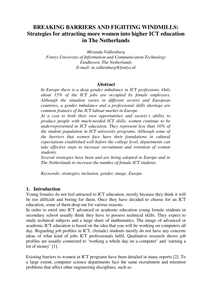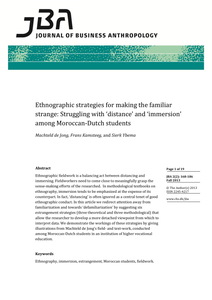This paper revisits how and why new multinational knowledge-based strategies and multi-level governmental policies influence the upgrading process of regions in developing economies. Automotive multinationals traditionally exploited local asset conditions, but it is shown that they have also been contributing to knowledge-generation systems via investments in R&D centres and cooperation with regional knowledge producers. We discern three elements of the upgrading process of regions—upgrading of domestic firms, subsidiary evolution and establishment of strategic relations with local knowledge institutes—to analyse two case studies: Ostrava (Czech Republic) and Shanghai (China). The cases show that all types of upgrading—product, process, chain and functional—have taken place in the last years, and that follow sourcing may have a positive impact on regional upgrading. These observations provide lessons for governments in developing economies which aim to strengthen innovation-based regional development.
LINK
The preference of students in competence-based Pre-Vocational Secondary Education (PVSE) for information processing strategies and the development of their body of knowledge were measured in a study that was carried out with 31 participants. The students' information processing strategies were measured by means of semi-structured interviews, questionnaires and think-aloud sessions. 26 of the 31 participants had a preference for surface processing strategies when working in workplace simulation. The other 5 students preferred deep learning. The learning environment appeared to elicit this surface level processing. The development of the body of knowledge of the students was measured by means of the concept mapping technique. For most students, an improvement of the body of knowledge took place in the course of the project in workplace simulation that was researched. Their knowledge became more elaborate and better organized. No significant relations between information processing strategies and the development of the concept maps could be found for the students participating in the research.
DOCUMENT
The preference of students in competence-based Pre-Vocational Secondary Education (PVSE) for information processing strategies and the development of their body of knowledge were measured in a study that was carried out with 31 participants. The students' information processing strategies were measured by means of semi-structured interviews, questionnaires and think-aloud sessions. 26 of the 31 participants had a preference for surface processing strategies when working in workplace simulation. The other 5 students preferred deep learning. The learning environment appeared to elicit this surface level processing. The development of the body of knowledge of the students was measured by means of the concept mapping technique. For most students, an improvement of the body of knowledge took place in the course of the project in workplace simulation that was researched. Their knowledge became more elaborate and better organized. No significant relations between information processing strategies and the development of the concept maps could be found for the students participating in the research.
DOCUMENT
Purpose Supervisors are responsible to train students in healthcare placements. Although there is knowledge about workplace learning and supervision in general, little is known about supervisors’ pedagogic strategies in specific healthcare placements. In this study, we identify how supervisors’ reasoning and interrelated actions manifest in physiotherapy and nursing work settings. Methods Following the stimulating recall approach, we conducted 16 interviews with supervisors at seven work settings. Using a theoretical framework of workplace supervision, we performed a deductive template analysis. Results Four configurations of pedagogic strategies reveal how supervision manifests in healthcare placements. The results provide unique insights into specific supervision moments, and elucidate the situatedness of the supervisors’ strategies. Conclusions The present study illustrates the variation in aims and focus of supervisors in placements. Supervisors’ pedagogic strategies were found to be mainly based on (A) role modelling, (B) overall support, (C) trust, and (D) letting go. Further research is needed to investigate the interplay between supervisors and students in learning situations within work settings.
LINK
The purpose of this study was to investigate relations between goal orientations, information processing strategies and development of conceptual knowledge of pre-vocational secondary education students (n=719; 14 schools). Students' preferences for certain types of goals and information processing strategies were examined using questionnaires. Conceptual knowledge was investigated by having students create concept maps before and after a learning project. Structural analyses showed that student preferences for mastery and performance goals positively affected their preferences for the use of deep and surface information processing strategies. Preferences for work avoidance goals negatively influenced preferences for deep and surface processing. Use of surface information processing strategies negatively affected the development of conceptual knowledge. Remarkably, no relation was found between students' preferences for deep processing strategies and development of conceptual knowledge.
LINK
Blended learning offers a learner-centred approach that employs both in-class learning and digital technology to facilitate online learning. Such an approach is especially advantageous to adult-learners in higher education as it meets their educational needs. However, adult-learners’ participation in blended learning programmes remains challenging due to a general lack of online interaction, and no clear teaching strategies that address this concern. Literature relating to adult-learners’ educational needs and online interaction was consulted in order to design teaching strategies that foster adult-learners’ online interaction. The aim of this study is to further validate these teaching strategies, hence a multiple case study was carried out using a mixed method approach. As such, eight teachers and sixteen students from four courses across three universities in Belgium and the Netherlands were interviewed. Additionally, a questionnaire testing a pre-defined set of variables was distributed to 84 students. The results lead to a set of validated teaching strategies that help teachers to further develop their professional skills and expertise. The teaching strategies can be grouped into three categories, namely 1) the teacher's online presence, 2) collaborative learning activities and preparatory learning activities, and 3) the distribution of learning content and learning activities across online and in-class learning. An elaborate set of validated teaching strategies is included. This study aids towards teacher professional development and adds evidence-based knowledge to teaching strategies and instructional frameworks for adult-learners in higher education.
LINK
Many students persistently misinterpret histograms. This calls for closer inspection of students’ strategies when interpreting histograms and case-value plots (which look similar but are diferent). Using students’ gaze data, we ask: How and how well do upper secondary pre-university school students estimate and compare arithmetic means of histograms and case-value plots? We designed four item types: two requiring mean estimation and two requiring means comparison. Analysis of gaze data of 50 students (15–19 years old) solving these items was triangulated with data from cued recall. We found five strategies. Two hypothesized most common strategies for estimating means were confirmed: a strategy associated with horizontal gazes and a strategy associated with vertical gazes. A third, new, count-and-compute strategy was found. Two more strategies emerged for comparing means that take specific features of the distribution into account. In about half of the histogram tasks, students used correct strategies. Surprisingly, when comparing two case-value plots, some students used distribution features that are only relevant for histograms, such as symmetry. As several incorrect strategies related to how and where the data and the distribution of these data are depicted in histograms, future interventions should aim at supporting students in understanding these concepts in histograms. A methodological advantage of eye-tracking data collection is that it reveals more details about students’ problem-solving processes than thinking-aloud protocols. We speculate that spatial gaze data can be re-used to substantiate ideas about the sensorimotor origin of learning mathematics.
LINK
In Europe there is a deep gender imbalance in ICT professions. Only about 15% of the ICT jobs are occupied by female employees. Although the situation varies in different sectors and European countries, a gender imbalance and a professional skills shortage are common features of the ICT labour market in Europe. At a cost to both their own opportunities and society's ability to produce people with much-needed ICT skills, women continue to be underrepresented in ICT education. They represent less than 10% of the student population in ICT university programs. Although some of the barriers that women face have their foundations in cultural expectations established well before the college level, departments can take effective steps to increase recruitment and retention of women students. Several strategies have been and are being adopted in Europe and in The Netherlands to increase the number of female ICT students.
DOCUMENT

Ethnographic fieldwork is a balancing act between distancing and immersing. Fieldworkers need to come close to meaningfully grasp the sense-making efforts of the researched. In methodological textbooks on ethnography, immersion tends to be emphasized at the expense of its counterpart. In fact, ‘distancing’ is often ignored as a central tenet of good ethnographic conduct. In this article we redirect attention away from familiarization and towards ‘defamiliarization’ by suggesting six estrangement strategies (three theoretical and three methodological) that allow the researcher to develop a more detached viewpoint from which to interpret data. We demonstrate the workings of these strategies by giving illustrations from Machteld de Jong’s field- and text-work, conducted among Moroccan-Dutch students in an institution of higher vocational education.
DOCUMENT

Introduction: Fall rates and fall-related injuries among community-dwelling older adults (≥65 years) are expected to increase rapidly, due to the aging population worldwide. Fall prevention programs (FPPs), consisting of strength and balance exercises, have been proven effective in reducing fall rates among older adults. However, these FPPs have not reached their full potential as most programs are under-enrolled. Therefore, this study aims to identify promising strategies that promote participation in FPPs among community-dwelling older adults. Methods: This is an exploratory qualitative study. Previously, barriers and facilitators for participation in FPPs by older adults had been identified. Next, six strategies had been designed using the Intervention Mapping approach: (1) reframing; (2) informing about benefits; (3) raising awareness of risks; (4) involving social environment; (5) offering tailored intervention; (6) arranging practicalities. Strategies were validated during semi-structured interviews with communitydwelling older adults (n = 12) at risk of falling. Interviews were audio-recorded, transcribed, and analyzed following a qualitative thematic methodology, with a hybrid approach. Results: All strategies were considered important by at least some of the respondents. However, two strategies stood out: (1) reframing ‘aging’ and ‘fall prevention’: respondents preferred to be approached differently, taking a ‘life course’ perspective about falls, and avoiding confronting words; and (2) ‘informing about benefits’ (e.g., ‘living independently for longer’); which was mentioned to improve the understanding of the relevance of participating in FPPs. Other strategies were considered important to take into account too, but opinions varied more strongly. Discussion: This study provides insight into potential strategies to stimulate older adults to participate in FPPs. Results suggest that reframing ‘aging’ and ‘fall prevention’ may facilitate the dialogue about fall prevention, by communicating differently about the topic, for example ‘staying fit and healthy’, while focusing on the benefits of participating in FPPs. Gaining insight into the strategies’ effectiveness and working mechanisms is an area for future research. This could lead to practical recommendations and help professionals to enhance older adults’ participation in FPPs. Currently, the strategies are further developed to be applied and evaluated for effectiveness in multiple field labs in a central Dutch region (Utrecht).
DOCUMENT
